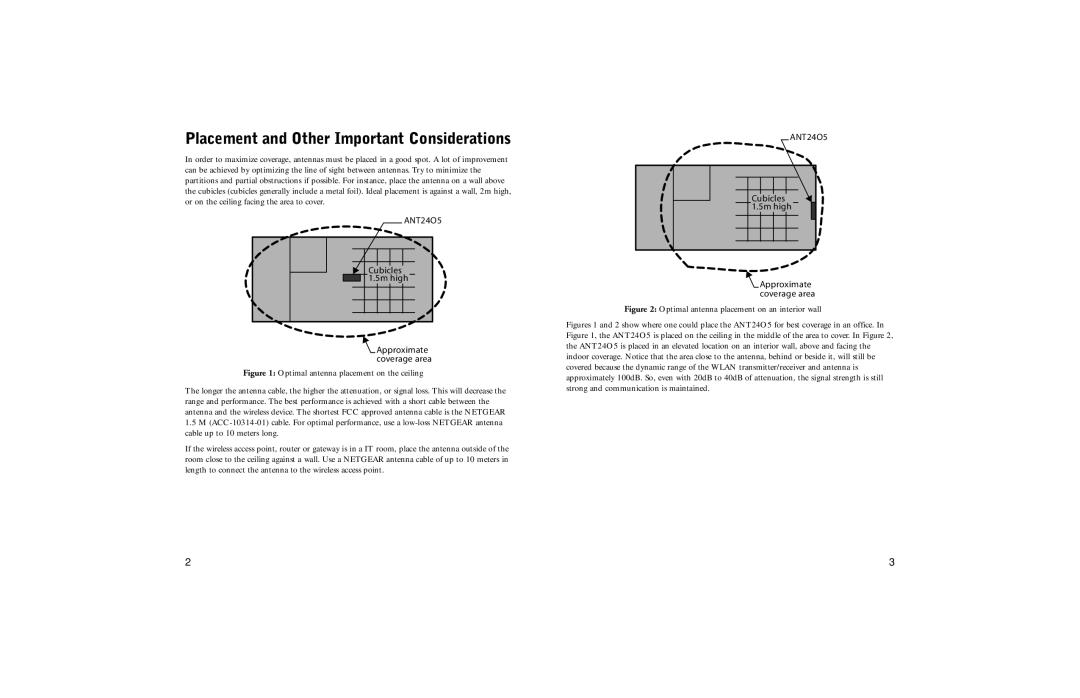
Placement and Other Important Considerations
In order to maximize coverage, antennas must be placed in a good spot. A lot of improvement can be achieved by optimizing the line of sight between antennas. Try to minimize the partitions and partial obstructions if possible. For instance, place the antenna on a wall above the cubicles (cubicles generally include a metal foil). Ideal placement is against a wall, 2m high, or on the ceiling facing the area to cover.
ANT24O5
Cubicles 1.5m high
 Approximate
Approximate
coverage area
Figure 1: Optimal antenna placement on the ceiling
The longer the antenna cable, the higher the attenuation, or signal loss. This will decrease the range and performance. The best performance is achieved with a short cable between the antenna and the wireless device. The shortest FCC approved antenna cable is the NETGEAR
1.5M
If the wireless access point, router or gateway is in a IT room, place the antenna outside of the room close to the ceiling against a wall. Use a NETGEAR antenna cable of up to 10 meters in length to connect the antenna to the wireless access point.
ANT24O5
Cubicles 1.5m high
![]() Approximate
Approximate
coverage area
Figure 2: Optimal antenna placement on an interior wall
Figures 1 and 2 show where one could place the ANT24O5 for best coverage in an office. In Figure 1, the ANT24O5 is placed on the ceiling in the middle of the area to cover. In Figure 2, the ANT24O5 is placed in an elevated location on an interior wall, above and facing the indoor coverage. Notice that the area close to the antenna, behind or beside it, will still be covered because the dynamic range of the WLAN transmitter/receiver and antenna is approximately 100dB. So, even with 20dB to 40dB of attenuation, the signal strength is still strong and communication is maintained.
2 | 3 |
